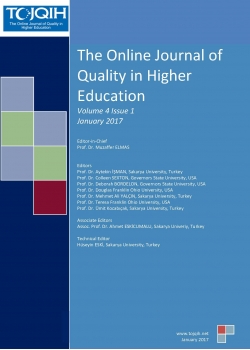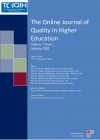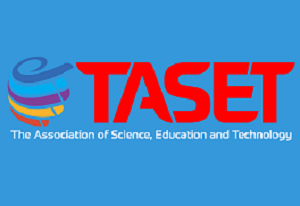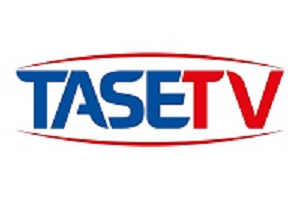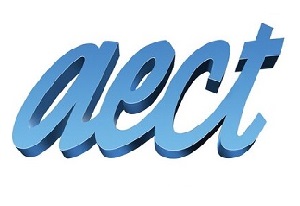TOJQIH - Volume 4 - Issue 1 - January 2017
 ACCREDITATION AND WORLD RANKINGS: THE QUALITY CRISIS OF INDIAN HIGHER EDUCATION INSTITUTIONS
ACCREDITATION AND WORLD RANKINGS: THE QUALITY CRISIS OF INDIAN HIGHER EDUCATION INSTITUTIONS Remith George Carri, Asha Joseph
Abstract:
Indian higher education system is undergoing a quantitative expansion since the recent past with the
establishment of a large number of new higher education institutions including universities to make educational
facilities available to all. The irony is that the quality of education is conveniently forgotten during this
quantitative growth. Indian higher education institutions are lagging behind the higher education institutions of
comparable nations in different world university ranking systems, which are considered as a measure of
institutional quality. Some of the famous world ranking methodologies and indicators are analyzed in this paper
to identify their key focus areas. The ranking criteria are then compared with the quality assurance system of
National Assessment and Accreditation Council of India to identify the similarities and differences, if any. The
possible reasons for the sub-standard performance of Indian higher education institutions in the international
ranking are being explored. Finally the paper suggests some adoptable measures to overcome the quality crisis
of Indian higher education system.
 AN INTERNATIONAL ASPECT IN TURKISH HIGHER EDUCATION SYSTEM
AN INTERNATIONAL ASPECT IN TURKISH HIGHER EDUCATION SYSTEM Gökçe MEREY, Reha Metin ALKAN
Abstract:
Having different perspectives, globalization has integrated world-wide view in education, culture, economy,
policies, marketing and brought competitiveness, democratization, and privatization. As a result of globalization,
more people from different areas started to request university education which resulted an increase in the number
of higher education institutions, thus the popularity of international education programs. The most important
goal of global education is to provide students and staff with different opportunities and let them widen their
minds by connecting cultural distance. It is a process to increase the knowledge and improve skills and behaviors
which is required to better survive in today’s world by achieving international sovereignty and international
financial strength. The study aims to utilize the previous studies and experiences to highlight the
internationalization processes worldwide and interaction of Turkey among the other countries, gives idea on the
contribution of internationalization to the Turkish higher education system and includes suggestions on the
additional tasks that might be done in order to achieve better success for international education in Turkey.
 DISTANCE CONTROLLED ON THE JOB TRAINING
DISTANCE CONTROLLED ON THE JOB TRAINING Ergün DEMİREL, Dinçer BAYER
Abstract:
On- the job- training (OJT) is now becoming an important part of many branches of the higher education in
particular for engineering and natural sciences. Some programmes allocate half to one year for on the job
training. The human resources departments are looking for the content and the place of the on the job training
during the interviews with newly graduated applicants. Most technical universities provide students not only
with theoretical knowledge on their majors but also practical training on their profession to satisfy the industry
which deploys these graduates. Nowadays on the job training is executed in defined periods in the work places
but under the supervision of academicians according to national and international standards. This research is
based on the investigation of the conduct, control and assessment xxx on the job training using distance learning
techniques in particular training conducted in far-away distance areas from the education institutes. This study
not only will help to create a distance controlled training system but also will provide essential data for planning
and conducting a feasible on the job training which combines efforts of the trainees at the site and lecturer at the
schools.
 STAKEHOLDERS’ INVOLVEMENT AND QUALITY ASSURANCE OF NATIONAL TEACHERS INSTITUTE PROGRAMME IN NIGERIA
STAKEHOLDERS’ INVOLVEMENT AND QUALITY ASSURANCE OF NATIONAL TEACHERS INSTITUTE PROGRAMME IN NIGERIA Michael Olarewaju OGUNDELE
Abstract:
The study investigated the stakeholders’ involvement towards enhancing quality assurance of National Teachers’
Institute programme. A descriptive survey research design of correlation type was adopted for the study.
Purposive random sampling technique was used to select 750 respondents from the centre managers, course
facilitators, directors of state ministries of education, principals, head teachers, traditional chiefs, registrars of
tertiary institutions for the study. Three research questions and five hypotheses were used for the study. A
researcher self-design instrument tagged “Stakeholder Involvement and Quality Assurance Questionnaire
(SIQAQ) was validated by the experts of educational administration, test measurement and evaluation and
distance education. The instrument was subjected split-half reliability method and the result was correlated using
spearman ranking order statistics. The reliability index of .65 taken indicated that the instrument was reliable. All
the research questions were answered using descriptive statistics such as percentages while the research
hypotheses were statistically tested using Pearson product moment correlation statists at .05 significance level.
The findings of the study however show that the stakeholders are highly involved in the capacity building,
finance, supervisions and monitoring and instructional facilities provisions. Recommendations are therefore
made that the issues of enhancing quality assurance in National Teachers Institute programmes should not be
left with the stakeholders alone but, all the private sectors, non-governmental organization, international
communities, religious bodies and well-meaning Nigerians. The involvement of every citizen will complement
stakeholders’ involvement for enhancing quality assurance in the National Teachers Institute.
 STUDENT EVALUATION OF MODULES: DOES THE TIMING MATTER?
STUDENT EVALUATION OF MODULES: DOES THE TIMING MATTER? Francis Ansah, Hope Pious Nudzor, Patrick Swanzy
Abstract:
The common practice in many higher education institutions in Ghana and Africa is for module evaluation to be
carried out at the end of teaching and learning activities. It is usually done before the final semester examination.
This timing is believed to be more of a conventional wisdom than a systematic research informed practice. This
study sought to find out students’ most preferred timing for module evaluation. The study used a mixed methods
design with a simple random technique to select four hundred and fifty (450) students from a public university and a
private university college. The findings revealed mixed views among participants with regards to the timing of
module evaluation even though majority (57%) prefer module evaluation to occur after the last class meeting with
the teaching staff, or after the final assessment of the module. The findings also established that there is no
significant difference between the views of students from a public university and those from a private university
college with regards to the most preferred timing of module evaluation. This implies that the timing of module
evaluation matters to students, which requires their involvement in the decision-making process of when to evaluate
a module. However, this study recommends that further research with larger sample size will be required in order to
establish a more conclusive outcome on students’ most preferred timing of module evaluation.

